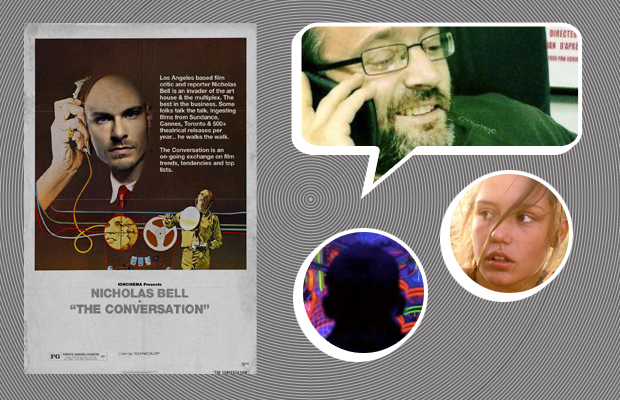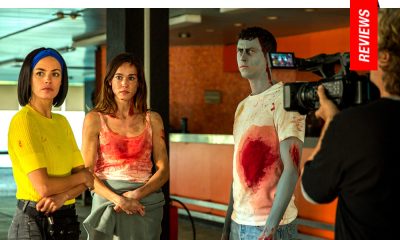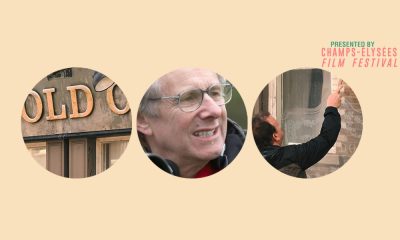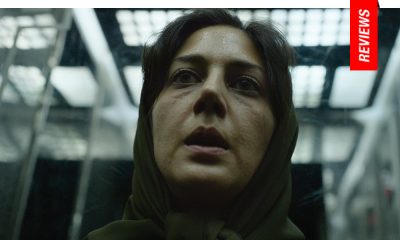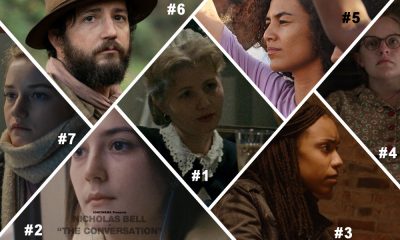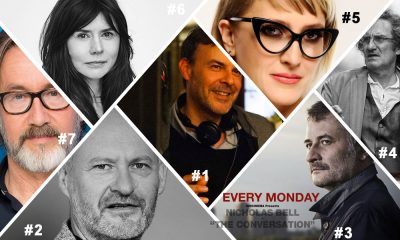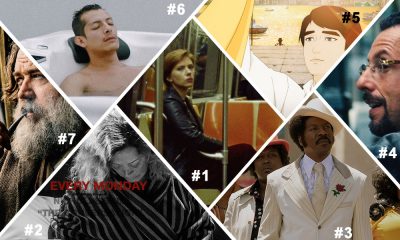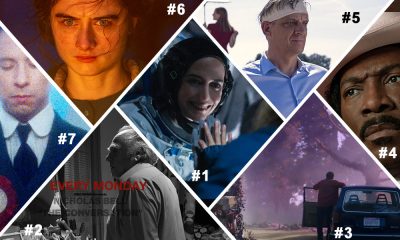The Conversation
The Conversation: Producer Vincent Maraval
Since its inception in the late 1990s as a subsidiary of Studiocanal, before breaking off on its own in 2002, French distribution company Wild Bunch has been one of the most high profile titans at the Cannes Film Festival (in 2016, they had five projects on the Croisette, including competition titles The Neon Demon, Graduation, and Palme d’Or winner I, Daniel Blake — as a side note, five Wild Bunch titles have snagged this honor since 2000, including items by Nanni Moretti, Michael Moore, Cristian Mungiu, and Abdellatif Kechiche). One of the founding forefathers, Vincent Maraval, is often featured in the press, a producer noted for crossing borders to snag projects with foreign auteurs, including Mungiu or Nicolas Winding Refn.
2016 was undoubtedly a good vintage for Maraval and Wild Bunch, and as we glide through the last weeks before the announcement of the 2017 program, we can bet the producer/distributor will again be on hand, though in a more subdued fashion. Balking at rumors last fall of a break with Wild Bunch, we expect to see Maraval on hand with Arnaud Desplechin’s Ismael’s Ghosts, which should be a top contender for a French slot in the main competition (Thierry Fremaux’s comments about locking Desplechin out in 2015 for My Golden Days, which premiered in the Directors’ Fortnight sidebar to great acclaim, also suggests Desplechin will be restored to comp status). A bit more tenuous, but also a possibility, is the sophomore film from Deniz Gamze Erguven, the Turkish-French director who made international headlines with her 2015 debut Mustang. She is in post-production with her high profile Los Angeles period piece Kings starring Halle Berry and Daniel Craig (depending on whether or not Erguven will be ready in time, Maraval might play an important role in where the film eventually gets programmed). Here’s a look at five favorite films produced by Vincent Maraval:
5. City of God (2002) – Dir. Fernando Meireilles
The cinematic success which paved the way for what Wild Bunch is today would be 2002’s City of God from Brazilian director Fernando Meireilles, who followed this with The Constant Gardener but hasn’t had quite the same level of success since. The title, which netted four Academy Award nominations, follows two young boys growing up in Rio de Janeiro and their divergent paths as they grow into young men (a television series spin off was also created in 2012).
4. Beyond the Hills (2012) Dir. Cristian Mungiu
After Romanian auteur Cristian Mungiu took home the Palme d’Or in 2007 with 4 Months, 3 Weeks, 2 Days, Maraval continued his collaboration with the director for Beyond the Hills, an emotionally grueling tale about the religion and sexual repression undermining the relationship of two women in a convent. Mungiu won for Best Screenplay, and the film also netted Cristina Flutur and Cosmina Stratan Best Actress honors at Cannes.
3. Welcome to New York (2014) – Dir. Abel Ferrara
Despite the highly publicized critique of Maraval and IFC Films from director Abel Ferrara concerning an R rated edit of Welcome to New York for its US theatrical release, this is not only one of Ferrara’s best films, but a rather daring venture considering its controversial reenactment of the Dominique Strauss-Kahn scandal. Gerard Depardieu and Jacqueline Bisset give some of the best turns of their distinguished careers in a film which was unfairly maligned by political posturing. Locked out of the 2014 Cannes competition, Ferrara was reduced to premiering out of the Market (two concurrent screenings had press and industry members in a frenzy, but Ferrara and his two stars made breathless appearances at both), the first of many programming slights the title would receive on its road to a theatrical release.
2. Enter the Void (2009) – Dir. Gaspar Noe
Infamously screened as a work-in-progress at the 2009 Cannes Film Festival, Gaspar Noe’s ambitious third feature Enter the Void was co-written by Lucile Hadzihalilovic and follows the spirit of a slain American drug dealer as he floats over the neon lit hell of Tokyo’s underbelly, observing the anguish of his sister (a never better Paz de la Huerta). A grimy, sleazy, transfixing experience, it is Noe at his most daring and transportive.
1. Blue is the Warmest Color (2013) – Dir. Abdellatif Kechiche
Even though the subsequent fall-out between Kechiche and his lead actors Lea Seydoux and Adele Excharopoulos was a bit unfortunate, the galvanizing Blue is the Warmest Color remains a stunning achievement. Charting the relationship of two young women as they fall in lust and love before eventually becoming emotionally estranged, the examination of identity alongside sexuality was potently captured in this daring bildungsroman of a woman who finds her agency without sacrificing or separating herself from her sexual orientation. Controversial for its blatant depictions of frenzied sex, its Palme win (which the Spielberg jury stressed would be shared between Kechiche, Seydoux, and Excharopoulos) remains a significant queer victory from a festival program which doesn’t usually feature a plethora of LGBT auteurs or subjects.
Los Angeles based Nicholas Bell is IONCINEMA.com's Chief Film Critic and covers film festivals such as Sundance, Berlin, Cannes and TIFF. He is part of the critic groups on Rotten Tomatoes, The Los Angeles Film Critics Association (LAFCA), the Online Film Critics Society (OFCS) and GALECA. His top 3 for 2021: France (Bruno Dumont), Passing (Rebecca Hall) and Nightmare Alley (Guillermo Del Toro). He was a jury member at the 2019 Cleveland International Film Festival.



